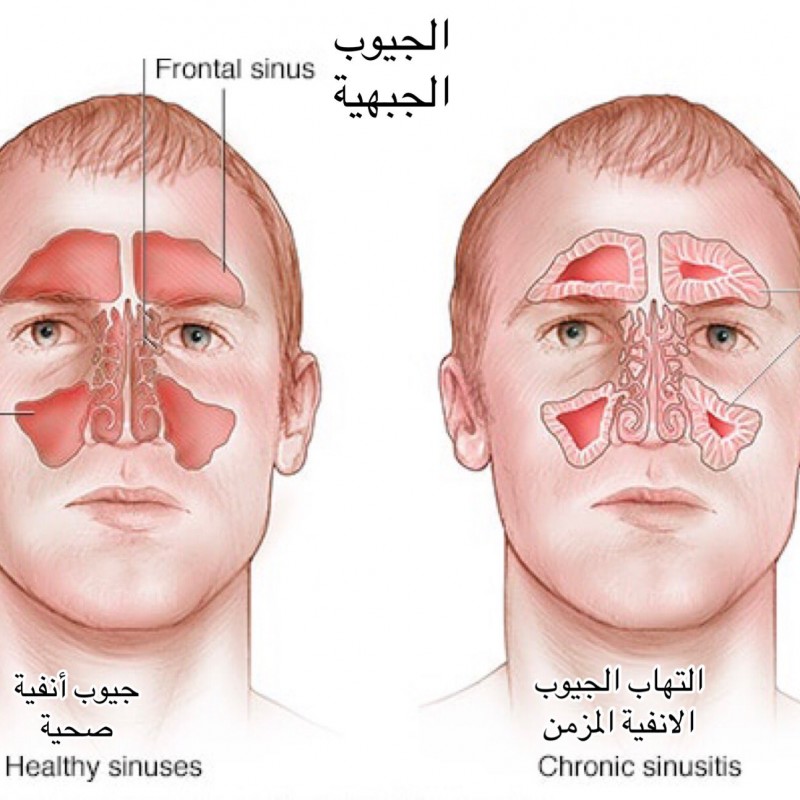Symptoms of allergic rhinitis
sneezing
Itching in the nose, eyes, or roof of the mouth.
Runny and stuffy nose
Tears, red or swollen eyes (conjunctivitis)
Causes of allergic rhinitis
It occurs when the immune system responds to a foreign substance, such as pollen, animal dander, dust, etc.
When you have allergies, your immune system makes antibodies that identify the allergens as harmful, even if they aren't. It causes inflammation in the nasal passages and cavity.
Risk factors
The risk of developing allergic rhinitis may increase in the following cases:
Having a family history of asthma or other allergies such as allergic rhinitis or eczema
The patient being a child
Having asthma or another allergic condition
Diagnosis of allergic rhinitis
* Symptoms and clinical examination
* Skin examination: the skin will be pricked and the patient will be exposed to small amounts of proteins contained in potential allergens. If you're allergic, a bump (urticaria) at the test site will appear on your skin.
Tests for specific immunoglobulin E (sIgE) in the blood:
It measures the amount of allergy-causing antibodies in the bloodstream, known as immunoglobulin E (lgE) antibodies. A blood sample is sent to a medical laboratory where it can be tested for evidence of allergy to a possible allergen.
* Radiography:
It can be useful in evaluating potential skeletal abnormalities or to help detect complications or comorbid conditions, such as sinusitis.
Prevention
Environmental control measures and allergen avoidance: These include minimizing exposure to allergens such as pollen, dust mites and mold.
Drug therapy
Patients are often successfully treated with oral antihistamines (eg loratidine), decongestants, or both; Regular use of a steroid spray (such as fluticasone nasal spray) intranasally may be more appropriate for patients with chronic symptoms.
Immunotherapy
For severe allergies or allergies that don't go away completely with other treatments, your doctor may recommend allergen immunotherapy. This treatment involves a series of injections of purified allergen extracts, usually given over several years

